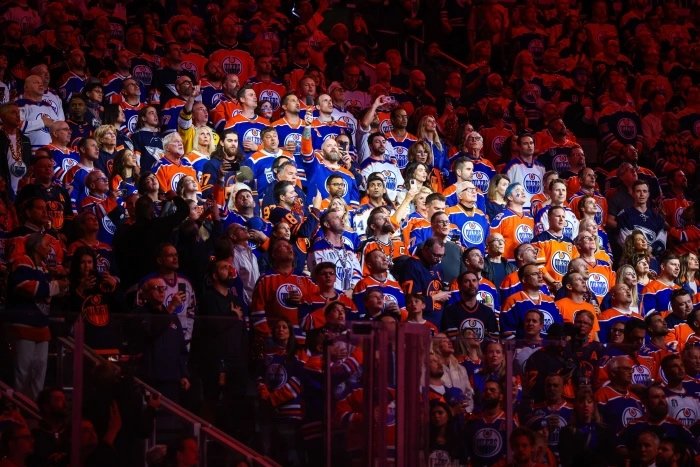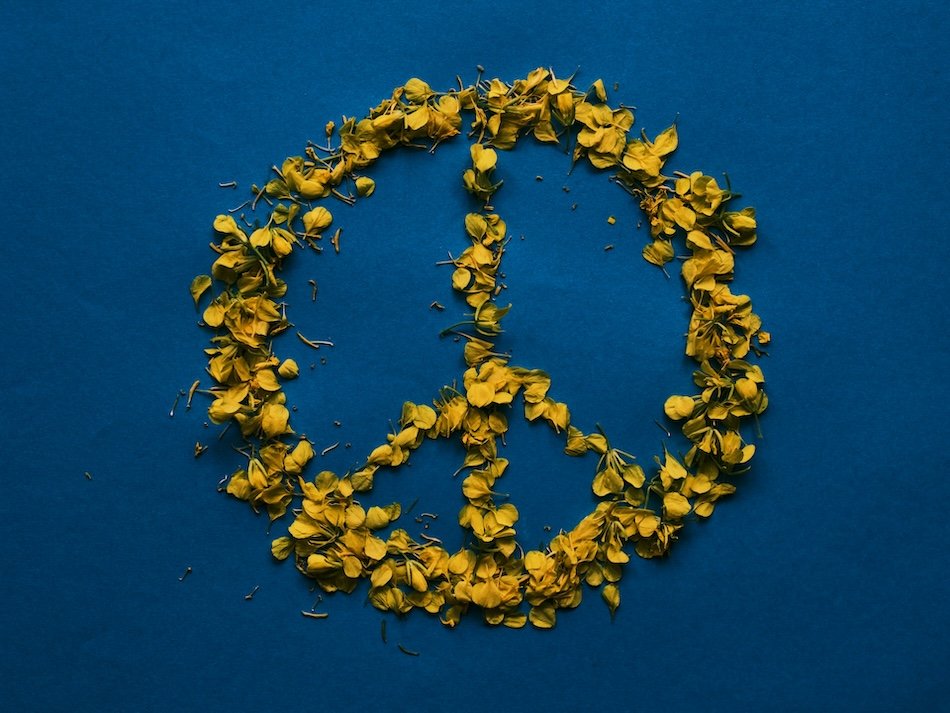Genuine Patriotism and the Stanley Cup
The Stanley Cup. Photo by Alex Goykhman, CC BY-SA 4.0, via Wikimedia Commons
A week ago, hockey’s Edmonton Oilers narrowly lost the last match-up in their seven-game Stanley Cup series with the Florida Panthers. The score was 2-1. The Oilers had lost the first three games and then brilliantly won the next three. Many Canadians hoped they would bring the Stanley Cup back to Canada after a thirty-year drought. Being a dual citizen of the United States and Canada, I tentatively shared their hope. Instead, the Panthers won their first Stanley Cup.
A Class Act
Watching the series, I was struck by the singing before each game. Because the two teams came from different countries, each night’s featured singer would perform both the Canadian and the American anthems. Only on the last night, led by dual citizen Alanis Morrisette, did the Panthers fans enthusiastically sing “The Star-Spangled Banner.” No doubt they were spurred on by how the Oilers fans had sung their national anthem just minutes before. They sang “O Canada” so lustily that they outpaced Morrisette by several beats.
Photo by Sergei Belski, USA TODAY Sports
Indeed, at every prior game in Edmonton, the fans had sung the Canadian national anthem with what looked like unabashed glee. After performing the opening lines (“O Canada! Our home and native land! True patriot love in all of us command”), the featured soloist, Robert Clark, would hold his microphone aloft to let the crowd’s singing sound forth, saying, in effect, we’re all in this together. Here’s a link to this moving display of solidarity and goodwill before Game Six in Edmonton.
If you scroll through the comments posted in response to this linked video, you’ll see how many people from around the world applauded the crowd’s patriotism, praised the beauty of Canada’s national anthem, or thanked Robert Clark for a class act. And it really was remarkable: a trained opera singer leading a rowdy crowd to sing heartily about their “home and native land” and doing so in ways that most “popular” singers can’t match. It’s hard not to feel inspired.
Love and Pride
Still, the philosopher in me can’t help but wonder what to make of all this. Why do we sing national anthems before sporting events? What sort of patriotism does this incite or express? Is such patriotism to be celebrated or questioned? Can we be genuinely patriotic in deeply divided countries?
Until the 1980s, philosophers showed little interest in the topic of patriotism. But then communitarian critiques of liberal individualism and upsurges in nationalism around the globe prompted philosophers to think more carefully about what patriotism is and why it matters. Russia’s attack on Ukraine in 2022 and an ongoing conflict in Gaza give added urgency to such reflections. So do studies that show a twenty-year decline in the percentage of American adults who say they’re “proud to be an American” as well as a tendency for younger folks to have more conflicted feelings about being proud Canadians than older generations do.
Point Reyes sunrise. Photo by Leo_Visions on Unsplash
It's not clear, however, whether pride is indispensable to patriotism. According to an entry by Igor Primoratz in the Stanford Encyclopedia of Philosophy, patriotism involves a love of one’s country, a sense of personal identification with it, and a special concern for the wellbeing of one’s country and compatriots. On this definition, a patriotic Canadian would love Canada, feel personally attached to it, and want the country and its citizens to thrive. Ditto for an American patriot: love of country, attachment to it, and care for its wellbeing. Although a patriot could take pride in the country’s good qualities and accomplishments and feel shame for its vices and failures, she or he would not need to be “proud to be an American.”
In fact, misplaced pride lies behind such familiar slogans as “My country, right or wrong” and “America, love it or leave it.” These do not express genuine patriotism. They cut off discussion about a country’s wellbeing and show disdain for compatriots who disagree. Rather than patriotism, they give voice to a vicious nationalism.
Two Different Loves
The failure to distinguish between patriotism and nationalism feeds into contemporary confusion about what patriotism is and why it matters. Whereas many political conservatives think only they are truly patriotic and then wrap themselves in the emblems of national pride, progressives often shy away from displays of patriotic fervor. They hesitate to fly their country’s flag on Canada Day or Independence Day and to sing its national anthem at the Stanley Cup finals. Progressives in the United States thereby surrender the field of genuine patriotism to the forces of white Christian nationalism, to what David Gushee calls authoritarian reactionary Christian politics.
Photo by engin akyurt on Unsplash
But patriotism and nationalism are two different loves—love of one’s country and love of one’s nation—and only the first is both legitimate and worthwhile. Why is that? Well, if by “nation” we mean a people united by common ethnic or cultural origins, then countries like Canada and the United States encompass more than one nation and, from the times of their official founding, they always have. In such multicultural countries, the politically motivated love of one’s nation usually supports discrimination and violence toward compatriots who “do not really belong”: indigenous peoples, immigrants, blacks, gays, etc.
Indeed, if we understand “nation” in this way, a blatant contradiction leaps from the pledge of allegiance Americans know by heart: “I pledge allegiance to the Flag of the United States of America, and to the Republic for which it stands, one Nation under God, indivisible, with liberty and justice for all.” The contradiction lies between “nation” and “for all.” In a mulitcultural country, allegiance to one nation in the sense of one people would hardly support liberty and justice for all.
Genuine Patriotism
The love of one’s country should be broad enough, by contrast, to include all the inhabitants of the jurisdiction where citizenship is held. One can be patriotic in this sense without ignoring the systemic injustices that afflict one’s compatriots and without regarding one’s country as somehow superior to every other. In fact, genuine patriotism supports and inspires fidelity to the societal principles of justice and solidarity. That is what makes it legitimate and worthwhile.
Genuine patriotism is a love of one’s country that simultaneously holds it to the highest social-ethical standards and celebrates it for the extent to which it meets them. Given the tangled histories and diverse populations of countries like Canada and the United States, such patriotism will be multicultural in texture and multiracial in scope. Genuine patriots will oppose narrow nationalism. They will strive toward the best vision of what, with all its historical failures and contemporary challenges, their country can be, “with liberty and justice for all.”
Happy Independence Day! Photo by Camylla Battani on Unsplash
In that spirit, Joyce and I plan to display our Canadian flag on July 1, right in the heart of West Michigan. On July 4 we’ll reflect, from a safe, fireworks-free distance, about the prospects for being genuine patriots in the United States. And we’ll join all of our Canadian and American friends in celebrating the birthday of our countries. Before we blow out the birthday candles, however, I’d like to repeat one little wish from last year’s blog post Common Ground. For the sake of our Ruby and millions of dogs like her, please spare us the fireworks!
Happy Canada Day!





